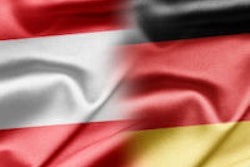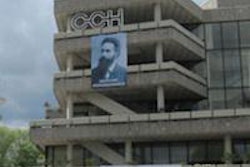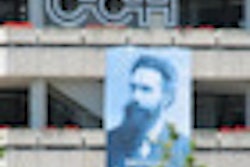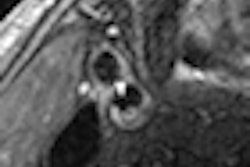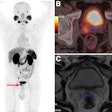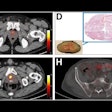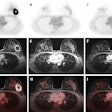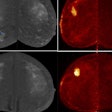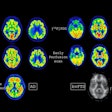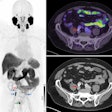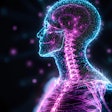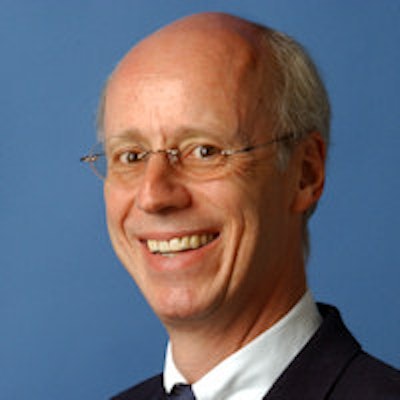
Dr. Mathias Langer will be presiding over the German Radiological Society's annual meeting, the DRK, in Hamburg at the end of this month. He is the medical director and a professor of radiology at the University Radiology Clinic, Albert Ludwig University in Freiburg, where he heads the department of diagnostic imaging. In this interview, he sets out details of what visitors to the congress can expect, and explains the many special features awaiting delegates.
This is an edited translation of a German-language interview that was originally posted as a Röfo podcast. It was reproduced with kind permission from Georg Thieme Verlag. To access a podcast of the full interview in German, click here.
 Dr. Mathias Langer.
Dr. Mathias Langer.
Röfo: Your slogan for this year's congress, "Radiology is the future," suggests that radiologists can be regarded as the driving force behind future innovation. How does the scientific program for DRK 2013 reflect this?
Langer: The main topics on which this year's congress will focus have shown that we are right at the heart of the whole issue surrounding clinical practice. The program also offers elements of basic radiology, with education and training in the form of features such as the "fit for the specialist" courses.
Then there are refresher courses for experienced people, providing information relating to further developments in diagnostic imaging. Add in the scientific papers, and you can see from the complete package that radiology stands at the heart of medicine, at the very heart of patient care, and we can use our expert knowledge and our technology to propel medicine forward.
What are the specific topics at the core of the congress, and which are the high points in the scientific program that will be particularly worth attending?
The main topic on which this year's DRK will focus is oncological imaging, with second place in terms of importance going to emergency radiology. Both of these areas occupy a central position in patient care. With MRI and image fusion with CT, ultrasound, and nuclear medicine procedures, we are in a position at a molecular level to provide clinical colleagues with detailed information about tumors that they can then use in planning treatment.
New advances in emergency radiology, particularly rapid high-resolution CT scans, mean that diagnoses can be made so quickly that clinical colleagues actually no longer consider radiology as a time-consuming subject. These are the basic areas on which we will be focusing our attention.
Unfortunately, you don't get all of this for free, and that's why we have also given prominence to the subject of cost-benefit analysis, so we really want to draw particular attention to the session that will address this topic. In this session, radiology will be analyzed from industrial and financial perspectives, so that people can see that good medicine and radiology are affordable and will remain affordable.
In your invitation to DRK 2013, you highlight the important and fulfilling task of attracting new recruits and inspiring the younger generation to take up radiology. How will the congress address this task?
I broached this subject earlier when I said that we would be holding "fit for the specialist" courses. These are educational packages that have been put together especially for young radiologists. They give less experienced colleagues the chance not only to take an in-depth look at radiology, but also to revise the basics of the subject once again.
However, in order to set radiology on an even broader footing, one of my predecessors who presided over the congress took the very sound step of introducing the "brightest minds in radiology" as a student-focused initiative. We have taken this forward on a broad basis, and this year we will, once again, be having a large number of medical students who will be able to attend the congress at no cost, and who will thus be able to see that radiology is the specialty of the future.
Medical imaging technicians (MITs) form a major and constantly growing group of visitors to the DRK. To what, in particular, can MITs look forward to this year?
By working closely with MIT organizations, we have managed to secure the services of qualified experts in MIT training to deal not only with oncology and emergency radiology, which are the main focuses of attention, but also with technical aspects of a further topic -- image fusion. Here, we are relying very particularly upon the fact that our colleagues are highly qualified in technical terms and, in addition, still have a real grasp of illnesses, so that, in conjunction with the equipment, software and, by no means least, radiologists, they can put together the best possible diagnostic imaging.
Alongside the scientific program, there is a social component to the congress that should not be overlooked. Hamburg has a whole host of places of interest and many cultural programs to offer. What would you like to highlight in this area?
This congress has a couple of cultural treats to offer, if one can call them cultural. First, there is our get-together at the start of the meeting, and I would like to extend a warm invitation to all participants to attend this.
Second, congress visitors should not forget about the Hamburg opera houses and theaters, about opportunities to attend a whole variety of private events during the afternoon, or to relax in the evening by the Binnenalster, or artificial lake. These are highlights in a city of which radiologists have grown very fond over the past years at congresses.
Finally, there is still the question of several aspects to which you, personally, are particularly looking forward at DRK 2013.
I am looking forward to three things at the congress. First, the get-together, welcoming a lot of colleagues to the meeting. Second, I am looking forward to the radiology lecture, which is going to be presented this year by an American-German, or German-American, colleague, who will take us deep into the world of cardiovascular imaging. Then, personally, I really like the fact that Hamburg has excellent restaurants offering superb Hanseatic cuisine, which I am hoping to enjoy once the congress has come to an end.





